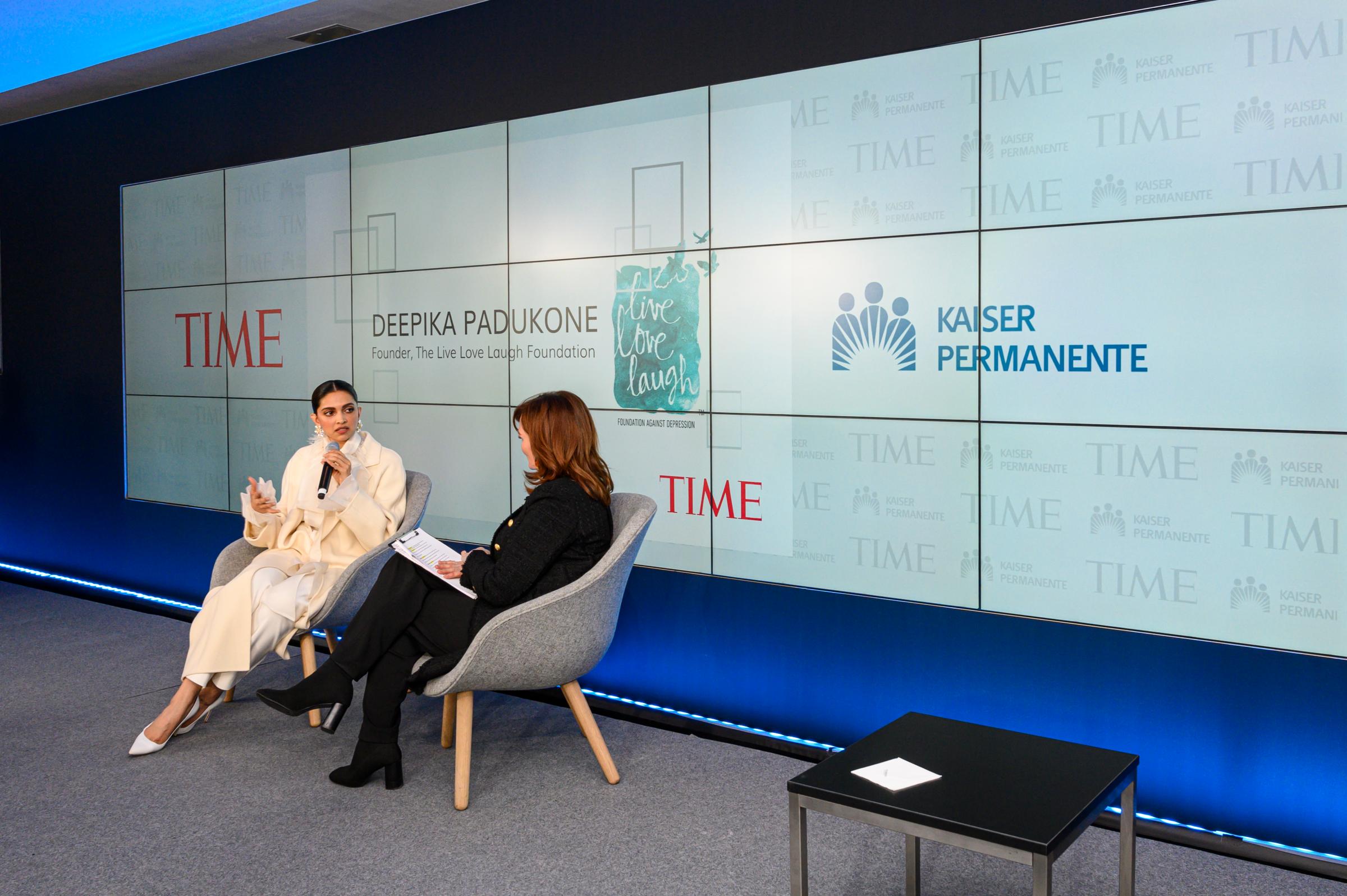Mental health issues affect billions of people across every corner of the globe, touching every community and every family, and mounting evidence shows the issue is worsening.
To combat the issue, we need to urgently grow our investment in programs that expand access to care, mental health advocates said at a TIME lunch on Wednesday in Davos, Switzerland. “Invest in the system, invest in our rights,” said Elisha London, founder and CEO of United for Global Mental Health. She called for $1 billion in spending on mental health programs worldwide: “It has to happen now.”
The event, held during the annual meeting of the World Economic Forum, featured a discussion with Indian actress Deepika Padukone, a tribute to Bernard J. Tyson—the late former Chairman and CEO of Kaiser Permanente—and a panel of mental health advocates in discussion with TIME’s Susanna Schrobsdorff. The event was produced in partnership with Kaiser Permanente.
The call for investment received attention for a very good reason: current mental health funding levels are woefully inadequate. In 2015, global funding for development assistance for health was estimated at $36 billion. Of that, only $110 million went toward mental health. Asked what would help address the issue, Padukone, who runs mental health advocacy group The Live Love Laugh Foundation, replied lightly “money, money, money” to the tune of the song.
The panelists also stressed that there are real solutions in need of funding. London advocated for thinking carefully about addressing a range of issues with specially-tailored solutions, from mild anxiety to serious mental illness. Don Mordecai, National Leader for Mental Health and Wellness at Kaiser Permanente, stressed that health care providers can help stem issues through early intervention.
“Any healthcare company, most of our investment is at the end of life, or once people have illness,” said Mordecai. “We’re leading the way thinking, ‘how do we actually go back upstream to where these things start?'”

The event wasn’t all about policy prescriptions. In a touching moment, panelists each shared an object representing their own perspective on mental health. Naeem Dalal, a young medical doctor in Zambia, shared his dad’s prescription for drugs to treat bipolar disorder. Miranda Wolpert, head of the mental health priority area at the London-based charity Wellcome Trust, shared an iPhone to show how solutions like playing Tetris after a traumatic event can help recovery. Schrobsdorff shared the turtleneck she wore to pick up her child from a wilderness program that she said “saved her life.” “Every time I put it on I think about that moment I saw her again,” she said.
Speakers also called for people to break the stigma that surrounds mental illness and for individuals and communities to support people who are hurting. “It’s about knitting our societies back together again,” said Mordecai. “There’s a real dearth of relational health.”
Padukone, a 2018 TIME 100 honoree, also shared her own experience coming to grips with her depression, details of which she has shared publicly to help others who are struggling. “Sleep really was my escape,” she said. “In the hours that I was awake, every second felt like a struggle.”
But she also offered an element of hope: she has learned to manage the problem. “I feel like in my journey, my acceptance and the diagnosis was half the battle,” she said.
More Must-Reads from TIME
- Cybersecurity Experts Are Sounding the Alarm on DOGE
- Meet the 2025 Women of the Year
- The Harsh Truth About Disability Inclusion
- Why Do More Young Adults Have Cancer?
- Colman Domingo Leads With Radical Love
- How to Get Better at Doing Things Alone
- Michelle Zauner Stares Down the Darkness
Write to Justin Worland / Davos, Switzerland at justin.worland@time.com